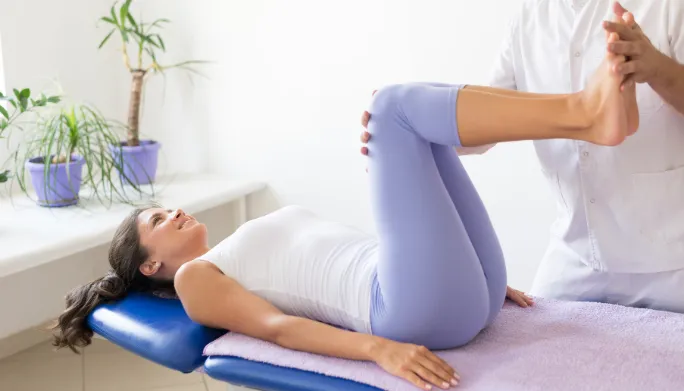Pelvic Pain in Utah
Transforming Lives Through Specialized Pelvic Floor Physical Therapy
Are you struggling with pelvic floor issues? Do you feel like these problems are just something you have to live with? At Reborn Pelvic Health & Wellness, we want you to know there’s hope for recovery and improvement, and it starts here with our specialized Pelvic Pain therapy services.

Why Consider Pelvic Floor Therapy in Layton and Lehi?
Many individuals suffer in silence with pelvic floor dysfunction, which can impact daily activities and overall quality of life. Our Pelvic Pain therapy program is designed specifically for those who need targeted, expert care to regain control and function. This service is crucial not just for those experiencing discomfort, but for anyone interested in maintaining pelvic health, especially postpartum mothers.
What Can You Expect From Pelvic Floor Therapy at Reborn Pelvic Health & Wellness?
Overview: How Pelvic Pain Therapy Helps
Our Pelvic Pain therapy is a specialized form of physical therapy that targets the symptoms and root causes of pelvic floor dysfunction. Here’s how it can help:
- Personalized Assessment: A licensed physical therapist will conduct a thorough evaluation of your core muscle strength, endurance, and coordination.
- Tailored Exercises: You’ll engage in specific exercises designed to strengthen and relax your pelvic muscles, improving both function and coordination.
- Ongoing Support: Our team provides continuous guidance and adjustments to your treatment plan, ensuring optimal progress and comfort.
Key Benefits: Why Choose Us?
- Postpartum Recovery: Essential for mothers in the postpartum period, aiding in muscle control, tissue repair, and scar healing from cesarean sections.
- Enhanced Muscle Function: Improves muscle control and coordination, which are crucial for daily activities.
- Accessible Care: We strive to increase awareness and access to pelvic health physical therapy, ensuring it’s a viable option for recovery.
FAQs About Pelvic Pain Therapy in Murray and Provo, Utah
Does it hurt?
Our therapies are designed to be as comfortable as possible, with adjustments made based on your feedback and comfort level.
What do I wear?
Comfortable, loose-fitting clothing is ideal to allow ease of movement during your sessions.
What if I feel too uncomfortable during a session?
We prioritize your comfort and consent. You can pause or stop the session at any time.


